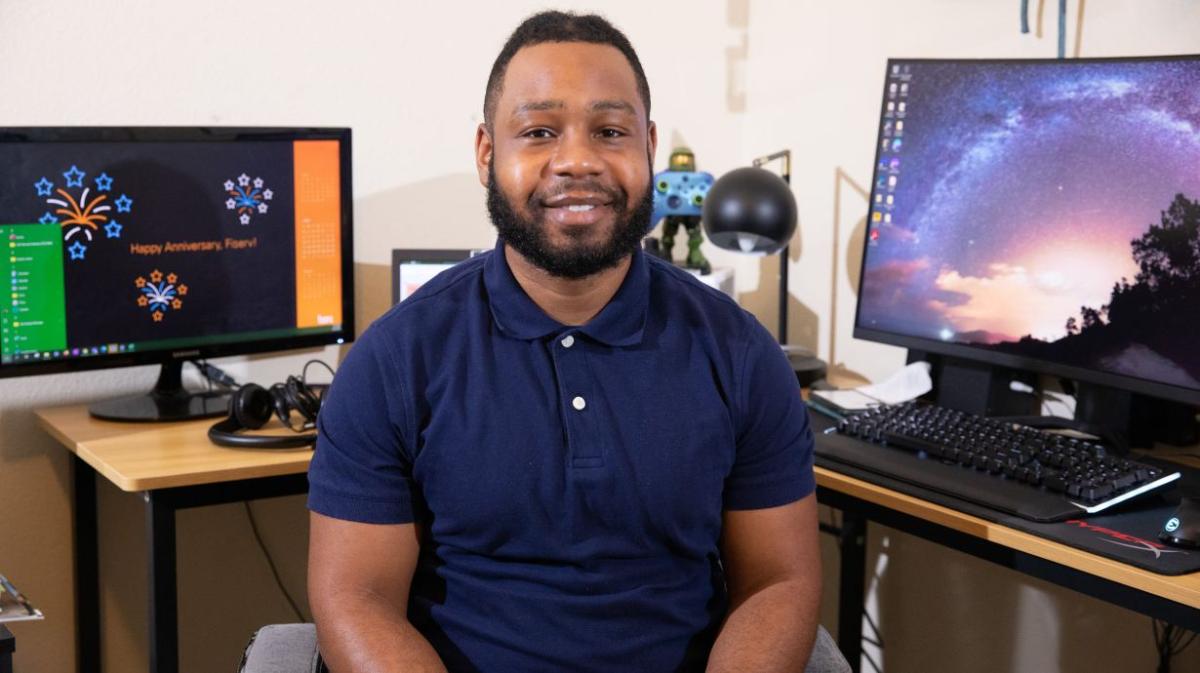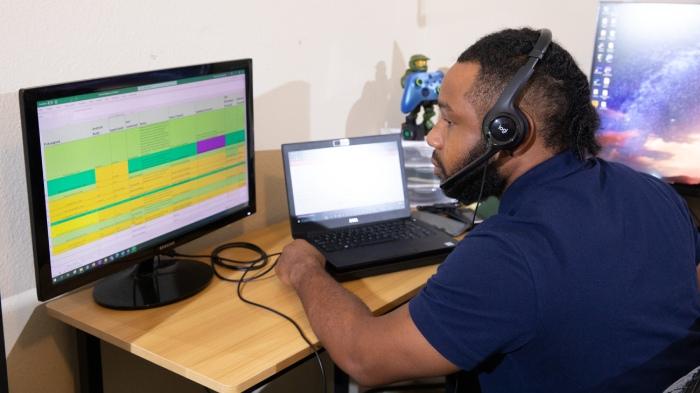5 Questions With Verizon Skill Forward Graduate Austin Stewart
This Georgia Techie Went From Job Burnout to Embarking on a Rewarding Career After Learning Valuable It Skills Through the Verizon Skill Forward Initiative.
In his former job, Austin Stewart, a 26-year old Georgia resident, was struggling with a burnout-inducing combination of low pay and long hours as a quality inspector for a medical firm. Then the pandemic lockdowns hit, and Stewart was suddenly working remotely. An avid gamer, Stewart built his own PC in his free hours, rekindling his childhood passion for tech. Soon, he started reimagining what his new career could be.
When a friend pointed him to Verizon Skill Forward, Stewart signed up for the full-time IT Support Specialist program offered in partnership with Generation USA. He remembers posing himself one question: ‘What do you have to lose?’ Turns out the answer was nothing. But he had the world to gain. After completing the 12-week training, acquiring hard skills such as IT Google certification, and soft skills such as leadership and customer service, Stewart is now a business systems analyst at a fintech company. Not only does he earn a higher salary, he loves his new career where thrives on problem-solving. “Now, it’s like everyday is new,” he says.
Q. Aside from building your own PC, what sparked you to jump into IT?
A. My friends from college were all working for great companies and their salaries were growing and mine had not. I said, “Something isn’t right. Something needs to happen.” Inflation was rising and it was getting tough.
Q. How did Verizon Skill Forward help prepare you to excel in tech?
A. When I interviewed for my current role, they asked me how many hours of troubleshooting I did, and how many hours of technical assistance and support. There was a whole segment on troubleshooting in the program that really helped out.
Q. What did you find most interesting about the program?
A. The program has different modules and they start out with the people aspect of things. What people sometimes don’t understand is that technology is very people-oriented. Although we’re dealing with software and technology, people are using the software and technology so you have to understand how people think in order to build apps.
Q. Did you get a job right away?
A. I made it to the final round of interviews with a fintech firm. But I didn’t get the job. A couple of months went by and I was still working at the medical supply firm. People started to leave the company and that’s when, after four years, they offered me the position that I was wanting—and a 10% raise—but for a trial period. It didn’t sit right with me, but I did it for two months. In the meantime, the fintech company called and said they had one last contract position as an IT analyst — providing tech solutions, fixing glitches, and developing apps—and it was mine if I wanted it. I told them to start the paperwork!
Q. What are the best aspects of making a career change?
A. I love the autonomy of being able to work on my own, but also doing great work with a team. Although I don’t have the label of team lead, after I finish with my work for the day, I field questions from the team. If something goes wrong, they usually come to me first. Or when my manager tells me I did a great job. That feels great.
Verizon Skill Forward is an initiative in partnership with nonprofit Generation USA that aims to close the opportunity gap for American workers by expanding access to professional and soft skills needed for careers in tech. To find a free training program, visit Generation USA today. Individual results will vary.



